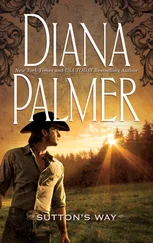Nik and Denise would later agree that their father was awful. He randomly appeared and then one day he was just gone forever. “He would have been a great uncle,” Nik said to her the last time they had discussed it. “The perfect present-carrying once-a-year uncle who can give you a report on how big you are and then wrestle with you for a minute before pouring himself a scotch and leaving the room.” Their father left their mother when Nik was five, so he had some memories of living with him. Denise was two and had none. And before Nik turned eleven, their mother would wake them one Saturday morning and tell them their father had died. Nik would cry, sitting in his pajamas on the couch. Denise’s mother also cried. Denise had to go to her room and stare at the picture she had of her father in her photo album. She really had to concentrate: He’s dead, and I will never, ever see him again. And finally, staring at his photo, she, too, began to cry.
He couldn’t stay for the birthday cookout. He was in town on business. “I wanted to surprise you,” he said. “I’ll just stay for a drink.”
He sat in the sun and drank from a tumbler of ice and bourbon. He smoked a cigarette and sweated in the shadeless yard. He wore a big ring on his finger that caught the sun and sparkled. Nik and his friends drank Cokes and they spoke in embarrassed hushes, glancing at Nik’s father. Their mother cooked the hamburgers on the grill. Denise urged Nik to open his presents.
“Not yet,” her mother said, “after the cake.”
“I have something you can open now,” her father said. He got up with a smile and went through the gate to the front, where his car was parked. They all stared at the gate until he came back, lugging a large black leather guitar-shaped case. He carried it to where Nik stood and put the case on the grass in front of him. Nik stared down at it. Although he had given Nik nice gifts in the past, the size and weight of this gift indicated an extravagance beyond any they had previously experienced.
“Open it, son.”
Nik unbuckled the case and hinged up the top. The lacquered rosewood gleamed in the sun. Their father reached down and pulled the guitar up with one hand on the neck and the other hand under the body. Mother-of-pearl was inlaid on the fingerboard between the frets, and there was matching inlay trim along the edge of the body and an inlay rosette around the sound hole. He handed it over to Nik, who pulled it to his chest. Nik stared down at it.
He finally spoke in a reverent whisper. “Thank you.” And that was it.
July 1, 2004
Dear Ada,
It is nearing midnight, and I can’t wait to leave this travesty of a day behind. It was not good or happy or kind. It took a long time to get here, and it will take a long time to leave. Be warned, I feel disoriented. But I will proceed in the finest faith I can muster. I must take care. Because, as we know, memory all too easily accommodates the corruption of regret.
You may surmise that I have had something to drink. This might make you think I am being hyperbolic or histrionic or that word that makes all women of my age cringe, hysterical. As if my hormones or my uterus (the Greek word for womb is hustera, etc.) were the engine of my writerly ablutions. That’s not it. Mostly I am writing because I know and see things no one else does. Because I have to. It is my job, my assignment. I am on the verge of elation. Liberated. Part of me feels relief, I cannot deny it.
I will elaborate, I promise.
“Oh, for God’s sake,” Denise said, barely audible in the empty room. Is this really what she was left with? Another overly elaborated joke?
How peculiar this feels: before tonight I never imagined I would try to write about anything, much less this. I don’t mean I don’t understand why people write. Written words demand the deep attention that spoken words just aren’t entitled to. Writers get to pull something solid out of our relentless, everyday production of verbal mucilage. A writer is a word salvager and scavenger and distiller.
As you know, I have occasionally fixated on words — I love to talk and sometimes words come out with embarrassing urgency. I can feel them as almost physical things as I push breath into them. This, I am afraid, is a consequence of solitude. Spoken words become extravagant and magical, and I admit that I have, on more than one occasion, caught myself speaking my thoughts aloud, as though vocalizing them gave them an extra reality, but I don’t think I ever felt any urgent expressive needs about actually writing words down. No desire to extrude something that would endure beyond my mere mortal squeak. Except now, when writing them down seems not to be about cheating the given human terms but instead simply a way to relieve my isolation. “The artistic impulse,” wrote Colette, “even more than the sexual impulse, breaches the barriers.” So be it — smash these walls down. Raze them to the cellar.
Denise stopped reading and took a long breath. And then another. She swayed and steadied herself against her brother’s desk. She realized she had been holding her breath as she read. And standing. She pulled out his desk chair with her elbow. She did not put the letter down. She held it in her hand, her index finger and middle finger keeping the last page distinct from the first. She sat on his chair and leaned toward his desk.
Her damp hair stuck to the back of her neck. She should take a sip of water, something. Denise read on to see what Nik had “Denise” say next.
The simplest answer and probably the most accurate answer is that Nik’s art was his life. And I don’t know what that means about a life. I have always resisted artistic impulses of any kind. I always believed that if you weren’t good, what right did you have to do it? This question dates back to when I did try, for a time, to be an actress. A deliverer and even exalter, I imagined, of all those delightfully rescued and worked words, phrases, and sentences. At seventeen I even enrolled in a very exclusive acting workshop. You didn’t know this, did you? But I must confess my initial appearance there, like many things in my life, was accidental. The class met at an equity-waiver theater on Melrose Avenue every Wednesday night. He was a famous teacher; he coached serious movie actors. He would be hired to be on set during important scenes. He held secrets, we were led to believe. And despite how cliché this may sound, I was not even intending to audition for his class. I was there with a friend who wanted to audition. My friend Avril (who burned to be an actor from the moment she saw Judith Anderson’s repulsive-yet-compelling performance in Hitchcock’s brilliant domestic torture film Rebecca), wanted to go and I came along to help her. We did a scene from Done by Hand. I played Janice. I knew nothing about acting. I had no desire to act. But, in the same way a broken clock is right twice a day (I apologize for another cliché), anyone can act for one scene if the one scene happens to require the exact comportment with which you are naturally inclined to when on stage. So in this specific role, in this specific scene, my fontal rush of propulsive fear, my prickly self-strickenness, and my strangled underlaugh that was (and still is) a result of what Sigmund Freud identified as the “liminal dilemma between the intense desire for supplication and the concurrent need for masochistic provocation” all combined to create an illusion of a brilliant stage presence, bursting with potential and future possibility. All of which I didn’t have — not as an actor, certainly.
So I was astonishing, a dazzling creature of tangled, alluring complexity. For five minutes, at seventeen, in the Barbara Stanwyck Theater on a Wednesday.
Читать дальше












